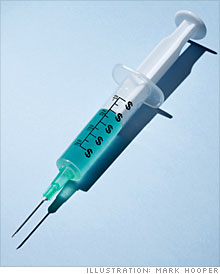Massachusetts' mandate
Small businesses have seen mixed results from the Bay State's pioneering health care reform plan.

(Fortune Small Business) -- Not content to wait for relief from Washington, Massachusetts lawmakers drove past the gridlock with a plan that in mid-2007 effectively forced businesses to provide health insurance to workers. All employers with more than 10 full-time workers are now required to make a "fair and reasonable" contribution to the cost of employees' coverage - or face penalties of up to $295 per worker per year.
How have the state's small businesses fared during the past 18 months? Early feedback from companies suggests that reform has raised costs modestly - and increased frustration more substantially.
Dave Ratner, president of Dave's Soda and Pet City in Agawam, Mass., pays monthly premiums of about $6,500 to insure the 33 of his 90 employees who elect to be covered. Under the new law, his firm is fined $275 for each worker who opts out, as several have (typically because they are covered under a spouse's plan or are college students still covered by a parent's plan). "It's insane," says Ratner, who had 2008 sales of $13 million. "The fines won't put me under, but it's not fair. The state is making it harder for small business to succeed here."
Of greater concern to companies is the effort by the state's regulators to add more mandatory benefits. This year, policies must include prescription drug coverage, one of the costliest benefits in a health policy.
"That's the real danger of reform," says Bill Vernon, state director of the National Federation of Independent Business, which represents about 9,000 small companies in Massachusetts. "Regulators just can't continue to pile on the benefits - and costs."
Massachusetts's historic experiment in universal coverage is being touted by some consumer advocates as the answer to the nation's health-care problem. For several reasons, that's unlikely. One is that Massachusetts has a higher proportion of insured residents than many other states. Only 12% of its citizens were uninsured in 2006, when the legislation was passed. By contrast, 25% of Texans are uninsured.
Massachusetts also has a significant cushion of state money set aside to compensate hospitals and other health-care providers for the free care they offer the poor and uninsured. But such resources are likely to dwindle - in Massachusetts and elsewhere - as the recession deepens. ![]()
Health care: The hidden business killer
Why pools haven't worked
Blueprints for a national policy
5 ways to tame costs
-
The Cheesecake Factory created smaller portions to survive the downturn. Play
-
A breeder of award-winning marijuana seeds is following the money and heading to the U.S. More
-
Most small businesses die within five years, but Amish businesses have a survival rate north of 90%. More
-
The 10 most popular franchise brands over the past decade -- and their failure rates. More
-
These firms are the last left in America making iconic products now in their twilight. More









